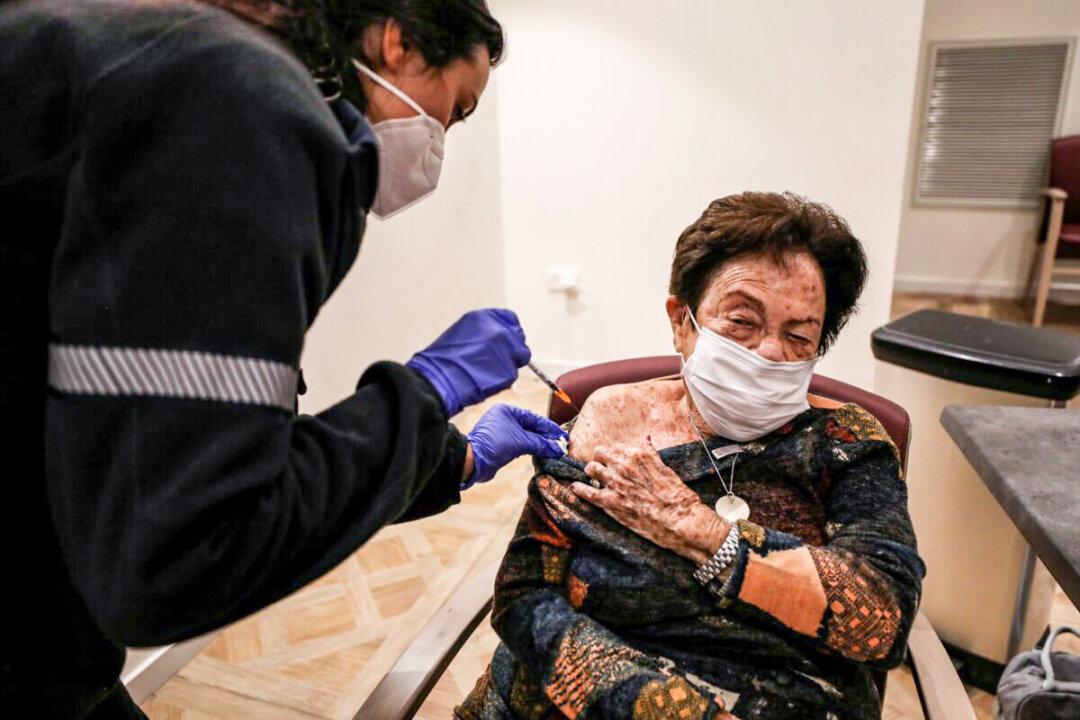A second booster of Pfizer’s COVID-19 vaccine was linked to a lower mortality rate in people aged 60 or older, according to a new study from Israel.
Researchers examined data from a medical records system run by Clalit Health Services and found that the death rate among the elderly who received two boosters, or four total shots, was 0.03 percent.





